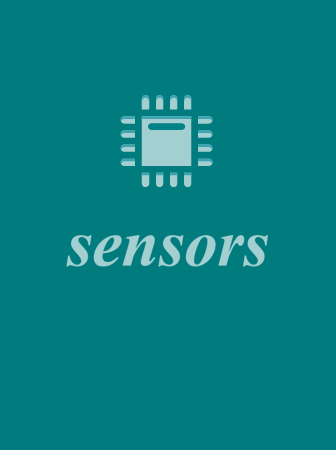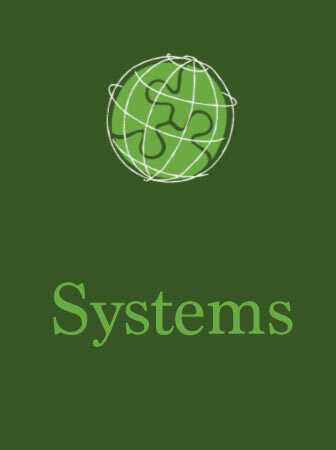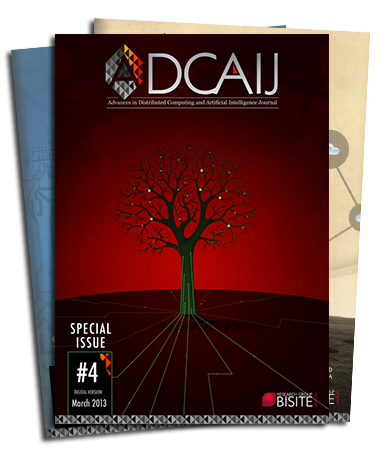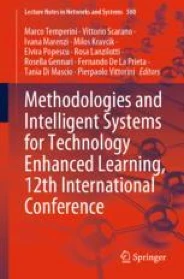Schools and higher education institutions are gradually implementing the use of information and communication technologies (ICTs) in the classrooms. Consequently, the teaching -and learning- processes are still to be reinvented and teachers relentlessly face new ways of dealing with their profession. The purpose of this track is to provide a forum to discuss the challenges posed by these technologies in the teaching profession and to offer practical answers for teachers to better make use of them (i.e., not only the technical mastery but also the application of pedagogical strategies to promote students’ learning).
It has been demonstrated that transferring existing programs or traditional lectures does not represent authentic ways of technology integration. The move from teacher-centered instruction to student based learning using interactive environments requires more complex solutions. It is therefore crucial for teachers (both pre-service and in-service) to be able to efficiently use these new tools. Teacher education programmes must then provide the means, models and frameworks to cope with the needs for the new forms of teaching and learning.
The main topics regarding this track are related but not limited to the following ones:
- Pre-service and in-service professional development education.
- Teacher Mentoring and coaching.
- Online and blended teaching
- Self-study to make sense of new ways of online teaching
- Promotion of web based learning, e-learning, and learning objects in classroom.
- Teachers’ technological competences and skills in classroom.
- Teachers’ practical knowledge (content, pedagogical and technological)
- Teachers’ Collaborative Learning and Teachers’ beliefs.
- New teaching methodologies (e.g., gamification).
- Action research and reflection processes for ICT.
- Educational inclusion (Challenges, accessibility, awareness and tools).
Chairs:
- María Cruz Sánchez-Gómez, University of Salamanca (Spain)
- Juan José Mena, University of Salamanca (Spain)
In recent years, there has been a great development in Technology Enhanced Learning, caused greatly by the distance learning exponential growth due to the COVID-19 pandemic. As a result, many applications of data analysis and modeling of learning processes, based on emergent AI techniques and method such as machine learning and deep learning, have been proposed. In line with this trend, the main goal of this track, connected to the MIS4Tel 2023 conference, is to discuss and evaluate the contribution that AI, as one of the Technology Enhanced Learning approaches, is bringing to the educational field, especially in the last years. This track is intended to be a great opportunity for researchers and practitioners in the field, both to discuss new ideas and to explore some important aspects regarding the close relationship between AI from an application and theoretical point of view.
The topics of interest for this special session include, but are not limited to:
- Deep Learning and education
- IoT applications in education
- MOOCs
- Peer Assessment
- IRT
- Learning Analytics
- Intelligent Adaptive Learning Environment
- Affective Computing in Education
- Artificial Intelligence algorithms in Education
- Artificial Neural Networks in Education
- Human-Computer Interaction in Teaching System
- Artificial Intelligence in Student Evaluation
- Assessing Student Performance using Artificial Intelligence
- Educational Robotics
- Data Mining, Text Mining and Web Mining in Education
- Intelligent Agent-based Learning Environments
- Smart Chatbots in Education
- Intelligent Tutoring Systems
- Virtual reality and Augmented Reality based Learning Systems
- Pedagogical Artificial Agents
- Digital Assistants
- Metaverse and education
Chairs:
- Dalila Durães, University of Minho (Portugal)
- Filippo Sciarrone, Universitas Mercatorum (Italy)
Format
All papers must be formatted according to the LNNS template, with a maximum length of 10 pages, including figures and references
Submission
All proposed papers must be submitted in electronic form (PDF format) using the MIS4TEL conference management system.
Review process
MIS4TEL welcomes the submission of papers and gives preference to the topics listed under the call. All submitted papers will undergo a thorough review process; each paper will be refereed by at least three experts in the field based on relevance, originality, significance, quality and clarity.
The papers must consist of original, relevant and previously unpublished sound research results related to any of the topics of the conference.
Publication
Accepted papers will be included in MIS4TEL Proceedings. At least one of the authors will be required to register and attend the symposium to present the paper in order to include the paper in the conference proceedings.
Accepted papers will be published by Springer Verlag in the Lecture Notes in Networks and Systems.
Please, remember that for the accepted version of your paper you must fill out and sign the Consent to Publish and send it back.
** Indexing: The books of this series are submitted to DBLP, INSPEC, Norwegian Register for Scientific Journals and Series, SCImago, SCOPUS, WTI Frankfurt eG, zbMATH, Google Scholar, Springerlink. **
Proceedings of MIS4TEL 2022 are available:
Methodologies and Intelligent Systems for Technology Enhanced Learning
12th International Conference
Editors: Marco Temperini, Vittorio Scarano, Ivana Marenzi, Milos Kravcik, Elvira Popescu, Rosa Lanzilotti, Rosella Gennari, Fernando De La Prieta, Tania Di Mascio, Pierpaolo Vittorini
More informationSpecial Issues









